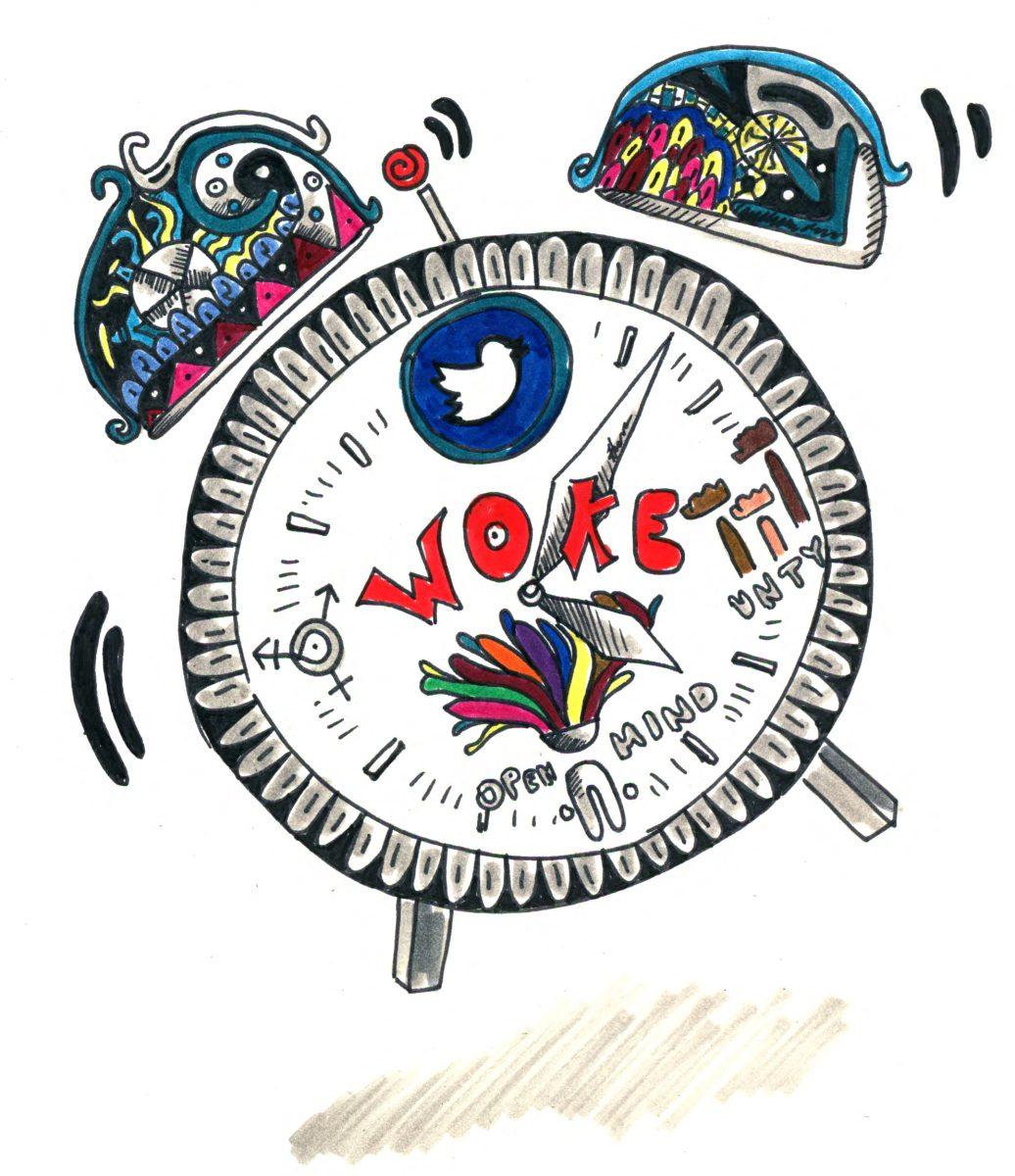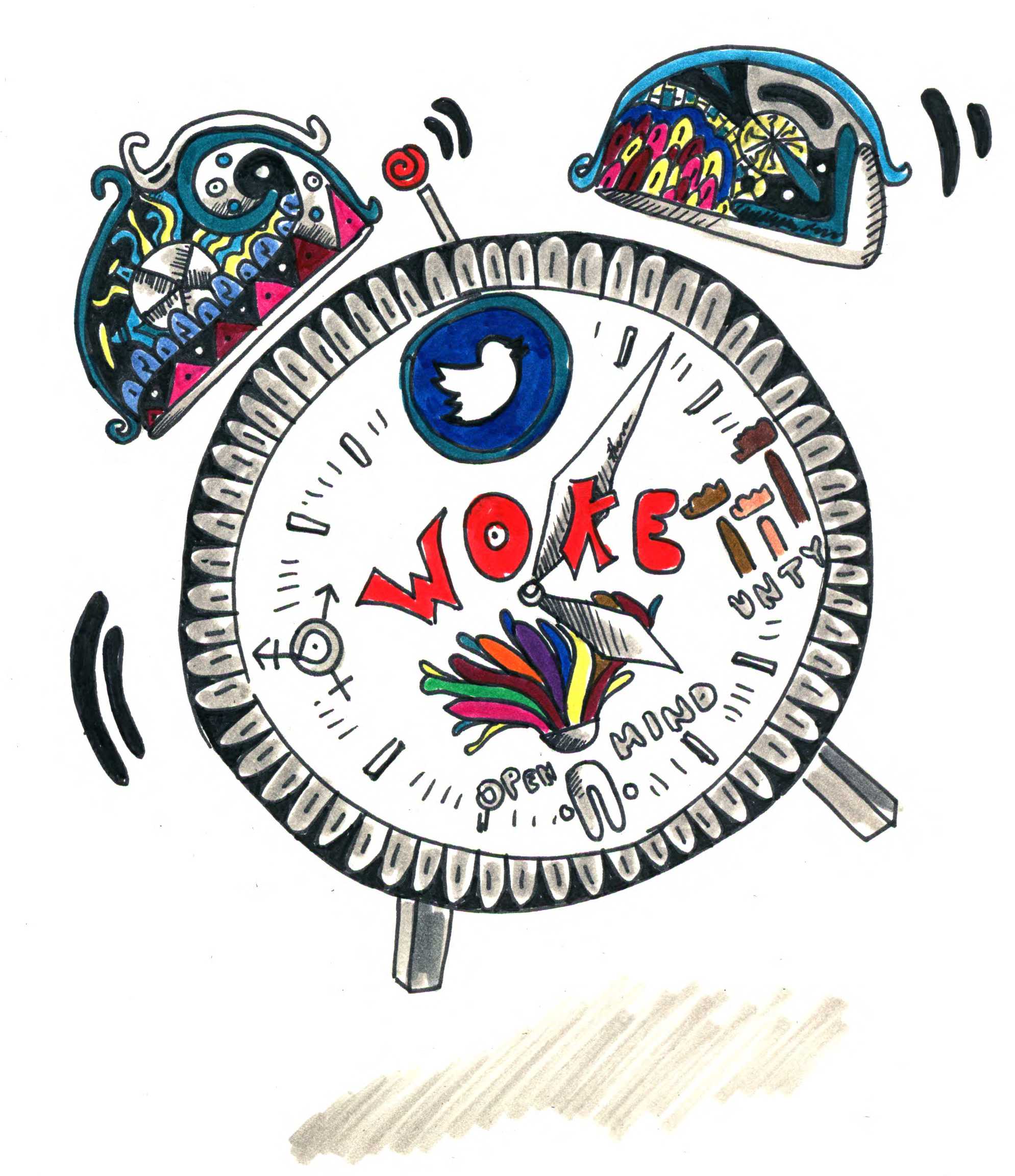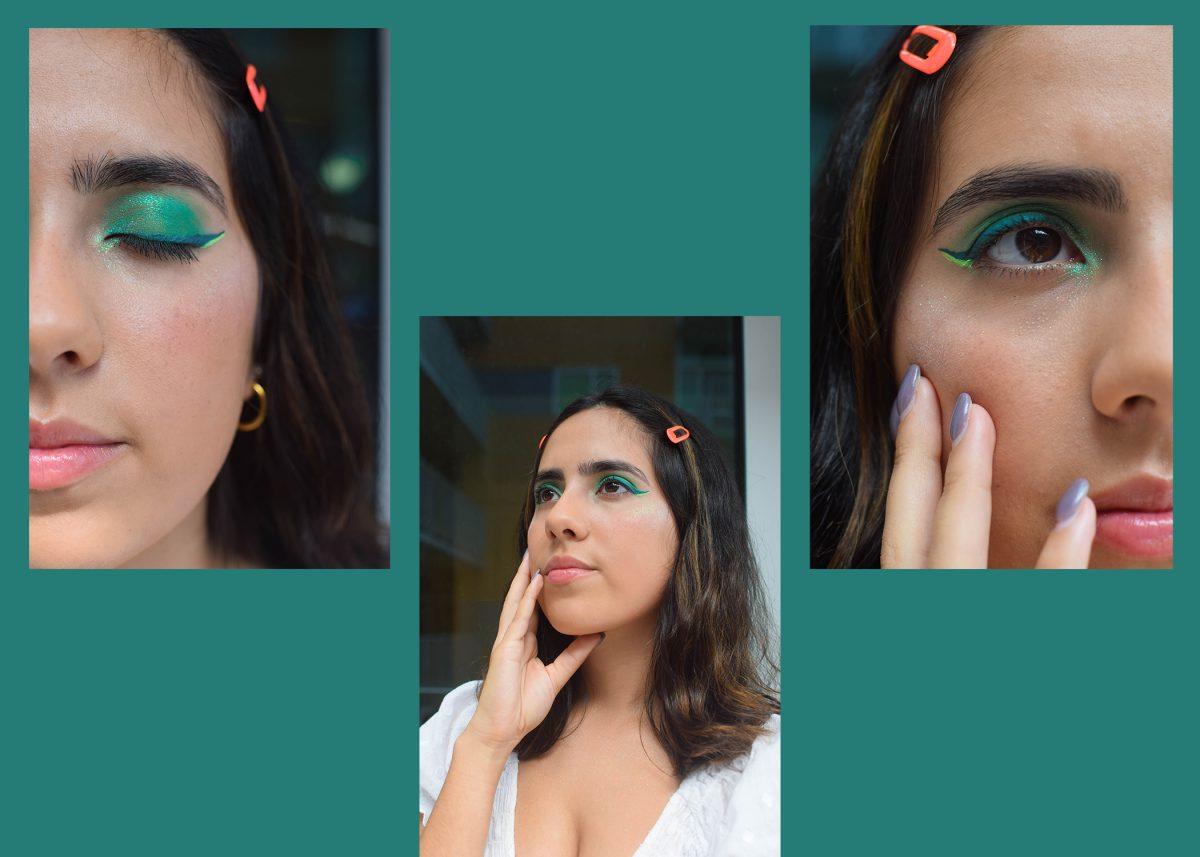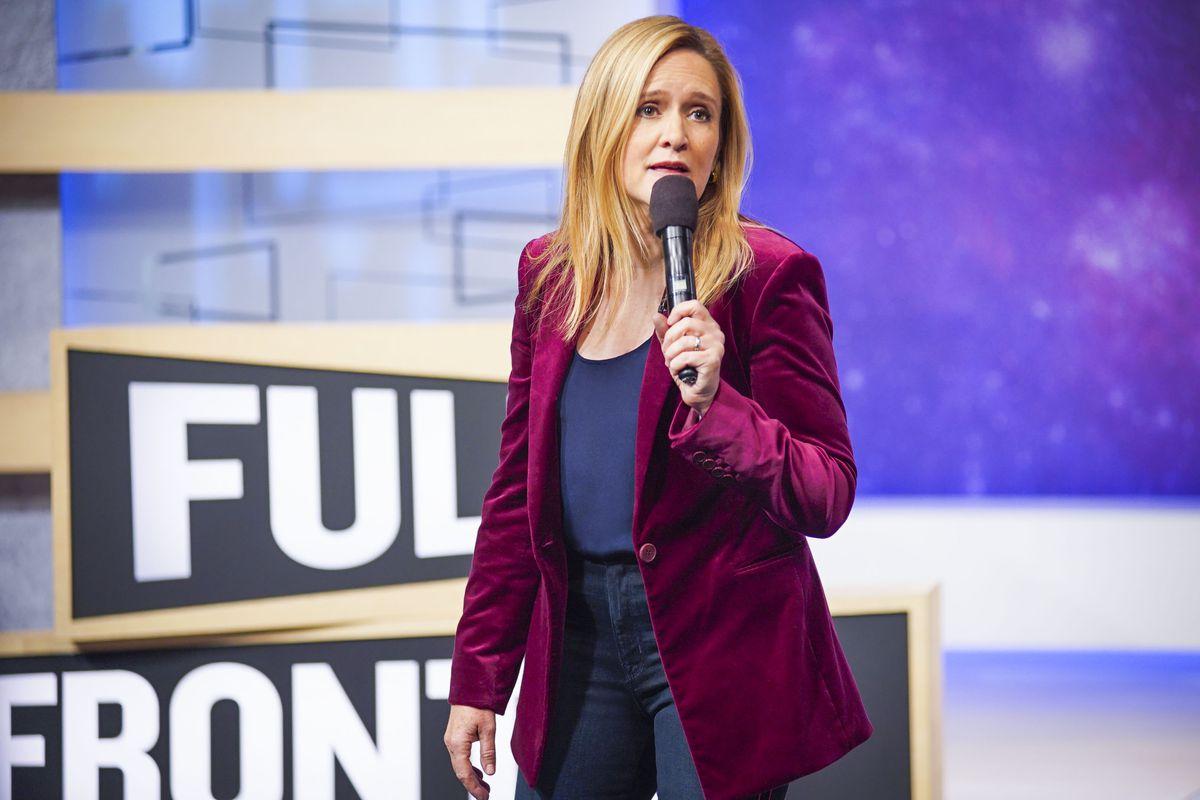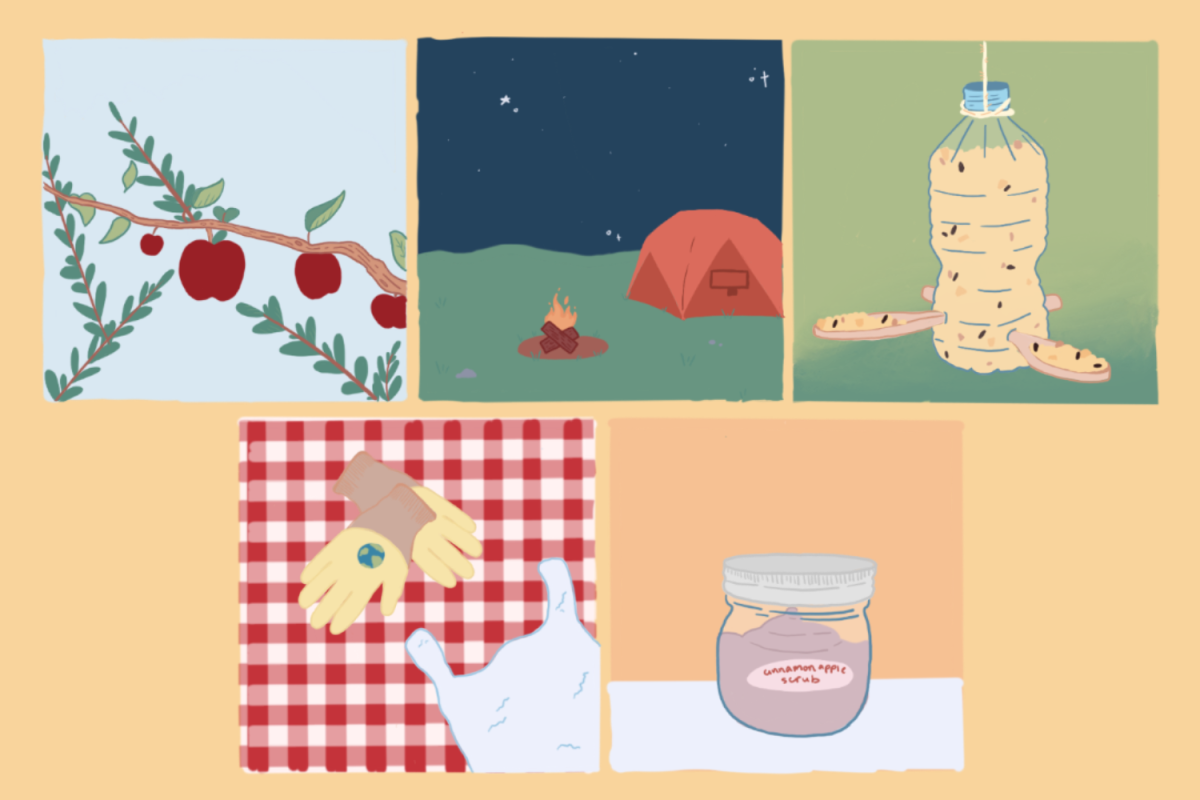Editor’s Note: This story appeared in the December 2015 ORANGE Issue IV.
Each morning across the Forty Acres, students rise from the comfort of sleep. Some find it more challenging than others to wake up. Sleepyheads miss their 12:30 p.m. classes while early birds see a colorful sunrise. Whether students rose with one alarm or twelve snoozed alarms, not all students “woke” up. Popular and youthful, “woke” has emerged as a term for social awareness.
Story by Zoya Zia
Illustration by Hunter Tanem
Why wokeness matters
“Woke is just looking at the world through a different lens,” business and sociology sophomore Yanusha Yogarajah says. “It is all about unlearning what society has taught you to think, unlearning the rigidities of life.”
Yogarajah first heard the word “woke” in a Tumblr post about the stigmas against darker skin tones in South Asia. “Having lighter skin is considered an element of inherent success and beauty,” Yogarajah says. “By being ‘woke,’ I look at this deeply ingrained thought in the South Asian community and get into the process of unlearning it.”
Over time, Yogarajah learned to accept her darker skin tone. She is conscious of how lighter skin is promoted in the community. “I need to make sure I don’t succumb to the stigma and don’t hate myself from it,” Yogarajah says. “Having darker skin doesn’t mean I am ugly or that my trajectory is to be in shambles. That’s a lot of what white supremacy is, placing a sense of subordination.”
Yogarajah thinks being woke is important for people of color since they may feel pressure to change their identities to fit in. “The world is not always working in our favor so I can’t blame those who may want to do that,” Yogarajah says. “But being woke has a lot to do with keeping the integrity of your identity and the value you give to the world.”
Given centuries of oppression, Yogarajah notes that unlearning has to start somewhere. “We’re not at the bottom of the ladder and we have value as well,” Yogarajah says. “To unlearn any notions of saying we are worthless or that we have lesser value, it is all about unlearning what history has brought upon us.”
Business honors freshman Rachana Jadala also emphasizes being aware of historic violence. “The system we live in was created with ‘the common man,’ so basically the white, cis, heterosexual, land-owning male,” Jadala says. “At the point where everyone else is asking for space in this country, there’s a pushback. Being aware of that pushback is what it means to be woke.”
data-animation-override>
“Being woke has a lot to do with keeping the integrity of your identity and the value you give to the world.”
Nursing junior Zebiba Salih has experience with that pushback, feelings of alienation and exclusion. “As a person of color, I cannot afford not to keep up with current events and what goes on,” Salih says. “It literally affects me.” Salih was not always woke, but she started reading more after Michael Brown’s death last August. Police officer Darren Wilson shot Brown, a black teenager, at least six times. “I started getting involved by looking at institutional racism,” Salih says. “I wanted to feel safe and secure, to know about society so that I can prepare myself and help others see what is happening.”
Salih points out the presence of confederate symbols and 3.9 percent black population at UT as evidence of why everyone should be woke. “They had to put so much effort and work into doing a simple thing like taking down the Jefferson Davis statue,” Salih says. “I feel like black lives are not really the priority on the campus. There are not a lot of us here at all.”
Jadala says that for change to occur, the public has to be involved. “Minorities are marginalized and people need to pay attention to this,” Jadala says. “It is necessary for them to be woke. There’s only so much I, as an individual, can do.”
Yogarajah agrees that everyone, “even those with privilege,” should be conscientious to other people’s experiences. “It is good to make sure you are not perpetuating the system,” Yogarajah says. “You can be an actor within the system that can help deconstruct negative processes.”
For Yogarajah, cultural appropriation at Halloween is an example of furthering negative processes. “Students undermine the issue and think they do no harm by wearing costumes that make mockeries of different people,” Yogarajah says. “However, we need to make sure we do not perpetuate stereotypes.”
Yogarajah views the student protests at the University of Missouri, Yale and Ithaca as demonstrations of a dissatisfaction with the status quo. “Systems of oppression are still so real, even though we try to hide them and say things are better,” Yogarajah says. “Being woke helps us understand how much we need to work on to confront issues instead of turning them away.”
How to be woke
Being woke can start with a few simple keystrokes. For Salih, it was all about social media. “My Twitter used to just be all about sports, comedy and laughing,” Salih says. “Then I saw a side by side image of how militarized Ferguson was compared to the Middle East, and it really stuck with me. A simple retweet can inform someone.”
Twitter provides Jadala “a system to connect with other advocates and learn about other people’s perspectives.” Among those who Jadala follows are sex workers and queer professors. “I am able to hear about their everyday thoughts and how they are involved with being woke,” Jadala says. “Media is so individualized that their stories can be put out there. It gives marginalized communities a voice that I can amplify.”
Salih says she tries to stay open-minded by looking at a variety of articles. She also emphasizes the importance of hashtags. “You can’t just look at one source, you have to stay educated and continue to dig deeper,” Salih says. “Trying to keep up with the hashtags on social media is really important. Following certain people on Twitter makes a difference. Shaun King and Deray are some of my favorite accounts that share other sources.”
Yogarajah gets her news from multiple, non-mainstream media outlets. She says she tries to keep an open mind. “Always being willing to listen to and offer new perspectives is important because people experience things very differently,” Yogarajah says. “If you don’t understand something, try to be mindful when you ask questions but be willing to ask questions.”
With resources like the Multicultural Engagement Center and Counseling and Mental Health Center, Yogarajah considers the University of Texas at Austin a great place to stay woke. “UT has so many examples of wokeness,” Yogarajah says. “The Gender & Sexuality Center provides an open space for people with different identities.”
Jadala is involved with the Gender & Sexuality Center. She says the center gave her ways to advocate, besides tweeting. “They have pamphlets where you can learn about healthy relationships, and they also have lectures and speakers,” Jadala says. “The center allows me to be woke, not just the word but with an action past that. I tabled for Planned Parenthood, and learned about joining counter-protests.”
Classes can serve as avenues of wokeness as well. Last year, Yogarajah took “Performing Blackness.” Although she says she never felt more uncomfortable with ideas presented in a class, she says she learned from it. “Trying to understand what blackness is from a black professor was new,” Yogarajah says. “We were talking about white passing, which is when someone who is black can pass as a white person. It was so eye-opening to see how people can alter their identity, denying their blackness.”
Above all, Jadala considers people as important resources. “Looking at Facebook’s ‘your friends are attending these events’ platform, I have been able to see events that are held by other organizations, like the Palestinian Solidarity Committee and the Syrian People Solidarity Group,” Jadala says. “Being able to see and go to these events and provide solidarity for groups I am not directly involved in is not only a resource to learn but is also an avenue to support other ‘woke’ organizations on campus.”
Awake and awoke
With great knowledge comes a great responsibility to stay woke. Causes for change can overlap, depicting layers of oppression. “There are different struggles and intersectionality is very important,” Salih says. “For example, there is a solidarity with Palestinian liberation and Black Lives Matter.”
Yogarajah has mainly focused on being woke on racial issues. However, she says she understands how feminism upholds wokeness in the unlearning of patriarchy. “There is a lot of unlearning to do and having different sectors can help deconstruct any type of toxic structure,” Yogarajah says. “There’s no disadvantage to learning as much as you can about the world.”
Salih says that having white allies is important so that they can “understand their privilege.” Expanding upon that, Jadala says allies are necessary for her to feel able to assert her voice. “Allies provide security and safety,” Jadala says. “If they are just ‘female’ opinions or ‘black’ opinions, they can be easily dismissed. Allies should use their privilege to support the message.”
Yogarajah says she is in the process of staying woke, trying to make sense of “this third place” of being Asian and American. “There are a lot of given definitions of society of what those two mean and I don’t think I agree with them,” Yogarajah says. “I am conscious of the hurt that has come around people that have not recognized stigmas against dark skin, for instance. It is super unhealthy because there is so much inherent value that we are not taught to value.”
Still, Yogarajah has some mixed feelings with “woke.” “When you say someone is woke, you put them on a pedestal of having supreme knowledge or consciousness,” Yogarajah says. “Wokeness is a process, with no end, limit or stopping point. I like the term ‘being woke’ since it exudes we are still in the process of learning. There is constant learning and conscious learning, making sure those around you are also in this process.”
Each morning across the Forty Acres, students wake up. Sleep is necessary and ignorance is bliss, but the world can no longer afford to have passive youth. “I think that the reason why wokeness is a part of my lifestyle now is that I can no longer see myself not being socially aware,” Salih says. “Events affect my life, my family’s life, my ethnicity. It is a huge disadvantage and really bad to not be woke in this time and age. It would be dangerous too, because you would be passive towards oppression.”































